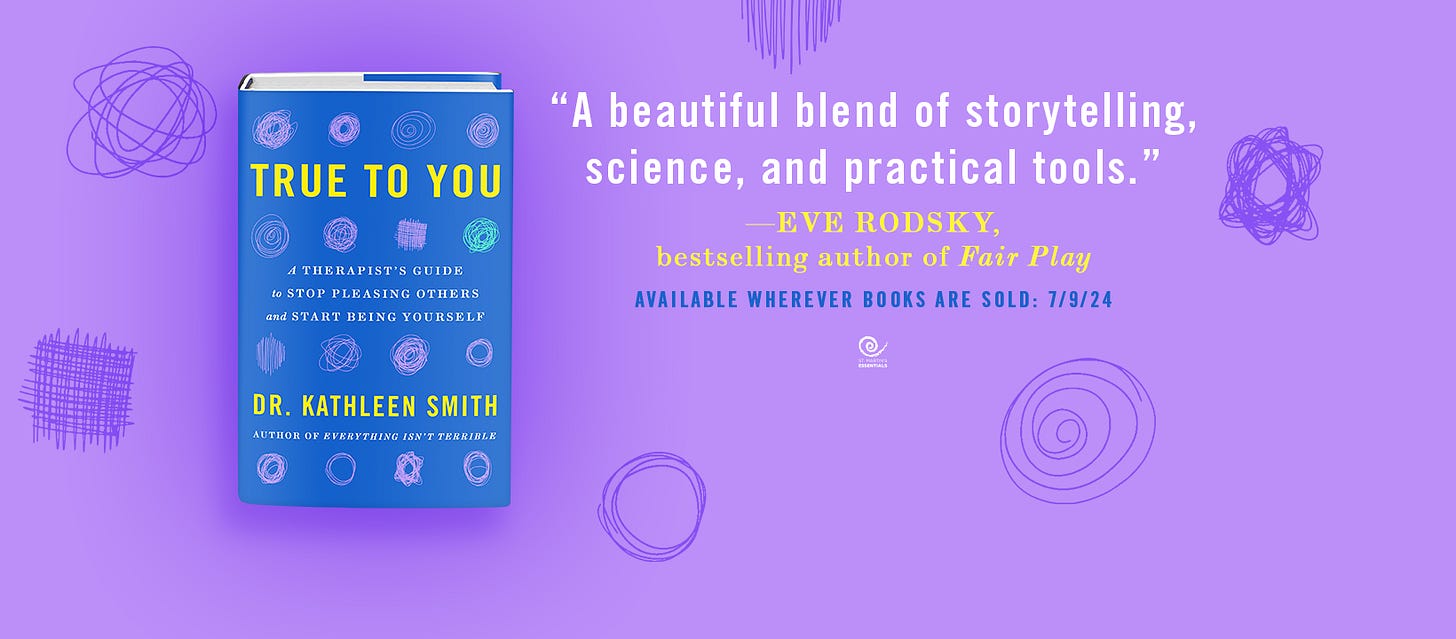My fall travel is finally over. Thank you readers in Boston, Saskatoon, Buffalo, and Chicago for your kind words and great questions. I recently discovered via Substack stats that there are folks from 98 (!) countries reading this newsletter, and it is a great joy every week to get to sit down and think out loud in this way. It is infinitely more life-giving than making PowerPoint presentations. So thank you for reading, for sharing with others, and for signing up for paid subscriptions. - K
One of the many things my colleagues have taught me is the value of a research question. Some people want to leave therapy with answers, but I hope they will leave with an interesting question. One that makes them want to tinker a bit with themselves.
Research questions shift us out of the why questions, like:
Why is she like this?
Why won’t he change?
Why can’t they hear me?
Why can’t I do this?
These questions are about blame, which has more to do with feeling steady than making a change. Whereas research questions are less about changing others, and more about testing out the flexibility of the system and oneself. About seeing the tension that gets stirred up when we move in a different direction. But often this tension feels more tolerable, because you’re curious enough to head into the laboratory that is your family or another system.
Good research questions could look like:
What will happen if I move towards them, instead of keeping my distance?
How much contact, and what kind of contact, would make me less allergic to my boss?
What would happen if I started asking people, “What are you going to do?” instead of telling them what to do?
Would ten minutes of working on this challenge every day be sufficient?
What would happen if I defined three principles for managing myself better during family visits?
What would happen if I stopped taking relationship advice from TikTok and wrote down my own thoughts?
What would happen if I called my brother instead of asking my sister how he was doing?
How many times would I need to get rejected before it felt more manageable?
How many minutes can I go without snapping at my mother when providing tech support?
A good research question isn’t about getting others to grow up. Let’s say you start asking your anxious friend, “What are you going to do?” instead of giving her advice. She might go and find another friend who will overfunction for her. People are slippery, and they can sniff out when they’ve become your project. But keep it up, and you might start to notice that you feel less reactive when friends are distressed. Maybe you have a little more choice about when you give advice and when you ask a good question. Interesting, right?
Research questions are less about choosing anxiety over calmness than they are about trading one kind of anxiety for another. The price of sticking with your automatic functioning is what Oliver Burkeman* calls “a constant background tug of discomfort.” So what does it take to move towards the anxiety of progress, the anxiety of developing our own versatility in relationships?
At the very least, it takes a good question. One your prefrontal cortex will latch onto and want to figure out.
What are the research questions that have prompted a change in how you relate to others? What are the research questions guiding you when you move out of familiar ways of relating to, blaming, or fixing others? When you move out of blaming or “fixing” yourself? Feel free to drop an example in the comments.
*I’m reading Burkeman’s new book Meditations for Mortals.
News from Kathleen
If you bought my book on Amazon, could you leave a review? I’m in need of some more so other folks can find it. Thanks!
Buy my new book, True to You! (If you didn’t get the preorder bonus workbook, just reply to this email letting me know where you bought the book, and I’m happy to email you one.)
Want to read more of my writing? Read my books or my newsletter archives. Paid subscribers an access the entire archive.
Email me if you want me to speak to your group or are interested in working with me. Follow me on Linkedin, Facebook, or Instagram.
Want to learn more about Bowen theory? Visit the Bowen Center’s website to learn more about their conferences and training programs.




This is a great article and came into my life at a good time. I like the way this approach reframes a problem/issue. I really enjoy your newsletter (and books). Thank you for you thoughtful articles...I've learned so much
I was redirected to this in the “Seeing yourself as an outsider” article of April 16. Both have been transformative. Im familiar with the concepts but using the term research question is a useful well-defined tool to take with me into social interactions.